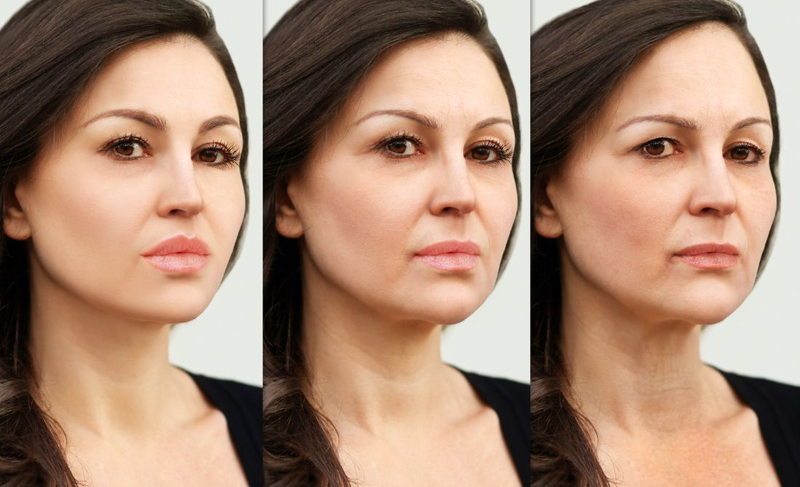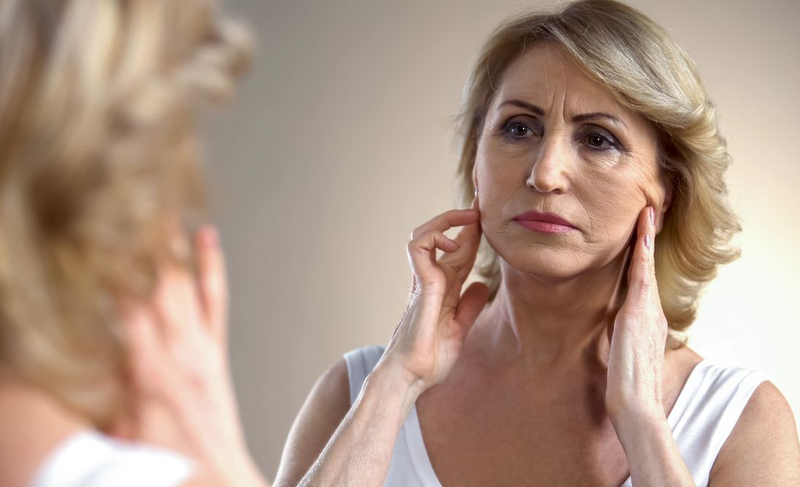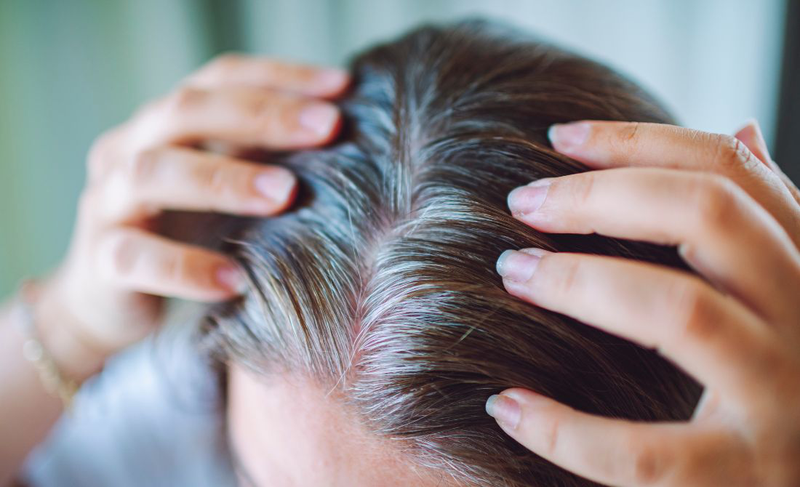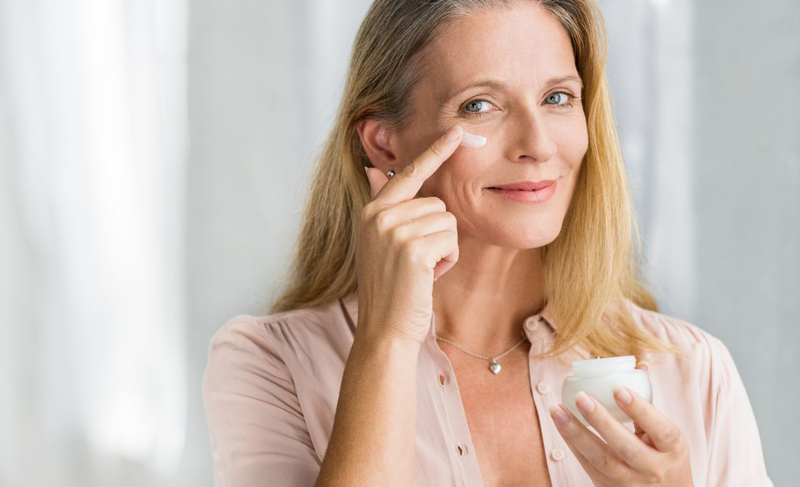Intrinsic aging is simply understood as the process of the body aging itself from within. Although it happens slowly, we cannot avoid this aging process. This article will help you better understand the causes and how to slow down this process.
As time goes by, signs of aging gradually appear on the body. In addition to exogenous aging caused by environmental factors, endogenous aging is also worth our concern. So what is endogenous aging? How does it occur and what effects does it have on health and beauty? Let’s learn about endogenous aging through this article!
What is endogenous aging? Mechanism of endogenous aging
Aging is an irreversible natural process that occurs in each person’s body. In which, endogenous aging is the aging process originating from within the body, controlled by genetic and physiological factors. It is different from exogenous aging – the aging process caused by factors outside the body.
Endogenous aging occurs slowly and surely, affecting every cell, tissue and organ in the body. At the cellular level, endogenous aging reduces the ability of cells to divide and regenerate. Telomeres – the repeated segments at the ends of chromosomes – get shorter with each cell division, leading to cellular aging and DNA damage. At the same time, changes in biochemical composition also contribute to the aging process. Specifically, the amount of collagen and elastin – two important proteins that keep the skin firm and elastic – gradually decreases, while free radicals increase. This causes cellular oxidation.

Intrinsic aging is a complex process that occurs slowly but surely.
Signs of internal and external aging
Internal aging leaves obvious marks both inside and outside the body. In terms of appearance, one of the typical signs of aging is wrinkles, especially around the eyes, mouth and forehead. Wrinkles appear because the skin becomes loose, losing its elasticity and firmness. Gray hair and brittle nails are also common signs of internal aging. In addition, body height also tends to decrease over time. The cause is due to loss of bone density and shrinkage of spinal discs.
Internal aging also causes many changes in the function of organs in the body. Decreased immunity makes the body susceptible to infections. Organs such as the heart, lungs and kidneys function less effectively. This increases the risk of chronic diseases such as cardiovascular disease, chronic obstructive pulmonary disease, diabetes and degenerative joint diseases. In addition, senses such as vision and hearing also gradually decline in function with age.
Causes of endogenous aging
The endogenous aging process is influenced by many complex factors. The main causes of endogenous aging include:
Genetic causes
Genetic factors play an important role in the endogenous aging process. Some people have genes that cause them to age faster than others. These genes can affect the rate of cell aging, the ability to repair DNA, and the synthesis of collagen and elastin. All of these factors are related to aging.

Intrinsic aging affects both appearance and overall health
Endocrine factors
Endocrine factors also play an important role in the endogenous aging process. Hormonal changes, especially sex hormones, can cause many changes in the body, thereby accelerating the aging process. For example, in women, a decrease in estrogen after menopause can lead to osteoporosis, dry skin and an increased risk of cardiovascular disease.
Weakened immune system
The immune system plays an important role in protecting the body from harmful agents. When the immune system is weakened, the ability to fight disease is reduced. This creates conditions for aging cells and cancer cells to develop.
In addition to the above factors, lifestyle also significantly affects the endogenous aging process. Chronic stress increases the production of stress hormones, which are harmful to cells and accelerate the aging process. An unhealthy diet, lack of nutrients and lack of exercise also reduce the body’s antioxidant capacity. These habits all increase the risk of chronic diseases and accelerate the endogenous aging process inside the body.
Measures to slow down the endogenous aging process
To slow down the endogenous aging process, many different measures have been studied and applied. Among them, changing lifestyle is one of the simplest ways, in addition to other medical interventions.

Do you understand the causes of endogenous aging?
Lifestyle changes slow down endogenous aging
In your daily diet, you need to increase the consumption of foods rich in antioxidants, vitamins and minerals such as fruits, green vegetables, nuts. These foods will help neutralize free radicals, protecting cells from damage. At the same time, you also need to limit the consumption of sugar and saturated fat. Drinking enough water is also essential to maintain homeostasis.
Regular exercise is one of the most effective ways to slow down the aging process. Regular exercise helps strengthen muscles, bones and joints, improve blood circulation and reduce stress. Lack of sleep can cause many health problems, increase stress and accelerate the aging process. Therefore, to slow down the aging process, you also need to have enough and quality sleep.
Prolonged stress can cause many harmful effects on health, including accelerating the aging process. Finding relaxation methods such as yoga, meditation, and listening to music will help reduce stress and improve the quality of life. In addition, each of us should also pay attention to skin and hair care to delay signs of aging.
Medical intervention slows down endogenous aging
In addition to changing lifestyle, medical intervention methods also play an important role in slowing down the aging process. One of the most studied methods is hormone therapy. Hormone therapy, especially estrogen in women, can help improve menopausal symptoms and slow down skin aging. However, this method also comes with some disadvantages such as increasing the risk of certain diseases such as breast cancer and stroke.

Although we cannot prevent it, we can slow down intrinsic aging.
In addition to hormone replacement therapy, scientists are also researching and applying other methods such as stem cells and gene therapy in anti-aging. Stem cells have the ability to self-regenerate and differentiate into many different types of cells, with great potential in restoring tissues and organs damaged by aging. Gene therapy is a gene treatment method that aims to repair mutated genes, causing diseases related to aging. However, these methods are still in the research stage and have not been widely applied in clinical practice.
Endogenous aging is a natural process that no one can avoid. However, by applying appropriate methods, we can completely slow down this process. Hopefully, this article has provided you with useful information about endogenous aging, helping you to proactively take care of your health and maintain long-lasting youthful beauty.





